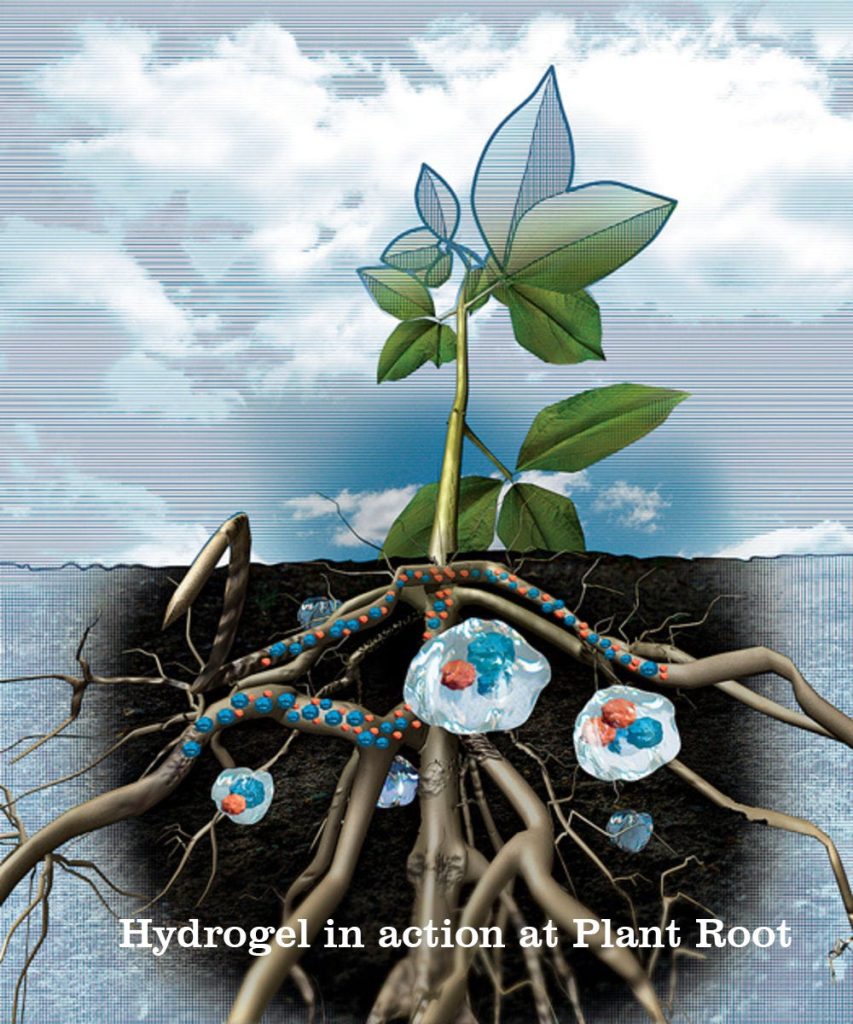The biodegradability of hydrogel polymers is noteworthy due to their sensitivity and potential absorption into plant tissues. When exposed to natural UV rays, hydrogels can undergo easy degradation.
Specifically, polyacrylate hydrogels become highly susceptible to aerobic and anaerobic soil microorganisms, leading to their breakdown into water, carbon dioxide, and nitrogen compounds.

Biological decomposition, facilitated by organisms such as fungi, contributes significantly to the mineralization of hydrogels. This process of biodegradation demonstrates high effectiveness, especially under conditions that promote solubility.
For instance, acrylate-based hydrogels undergo biodegradation in municipal compost at rates ranging from 1 to 9% per year under aerobic conditions, resembling the decomposition rates of organic matter in forest environments.
Полиакрилат калия is a hydrogel suitable for crops. It has a very obvious effect in improving soil structure and controlling the slow release of water and fertilizer. It can save 75% of soil water and increase crop yields by 35%. Potassium polyacrylate decomposes Finally, it can provide the necessary ions potassium ions needed for plant growth. To learn more about its applications, please remember to leave me a message!

